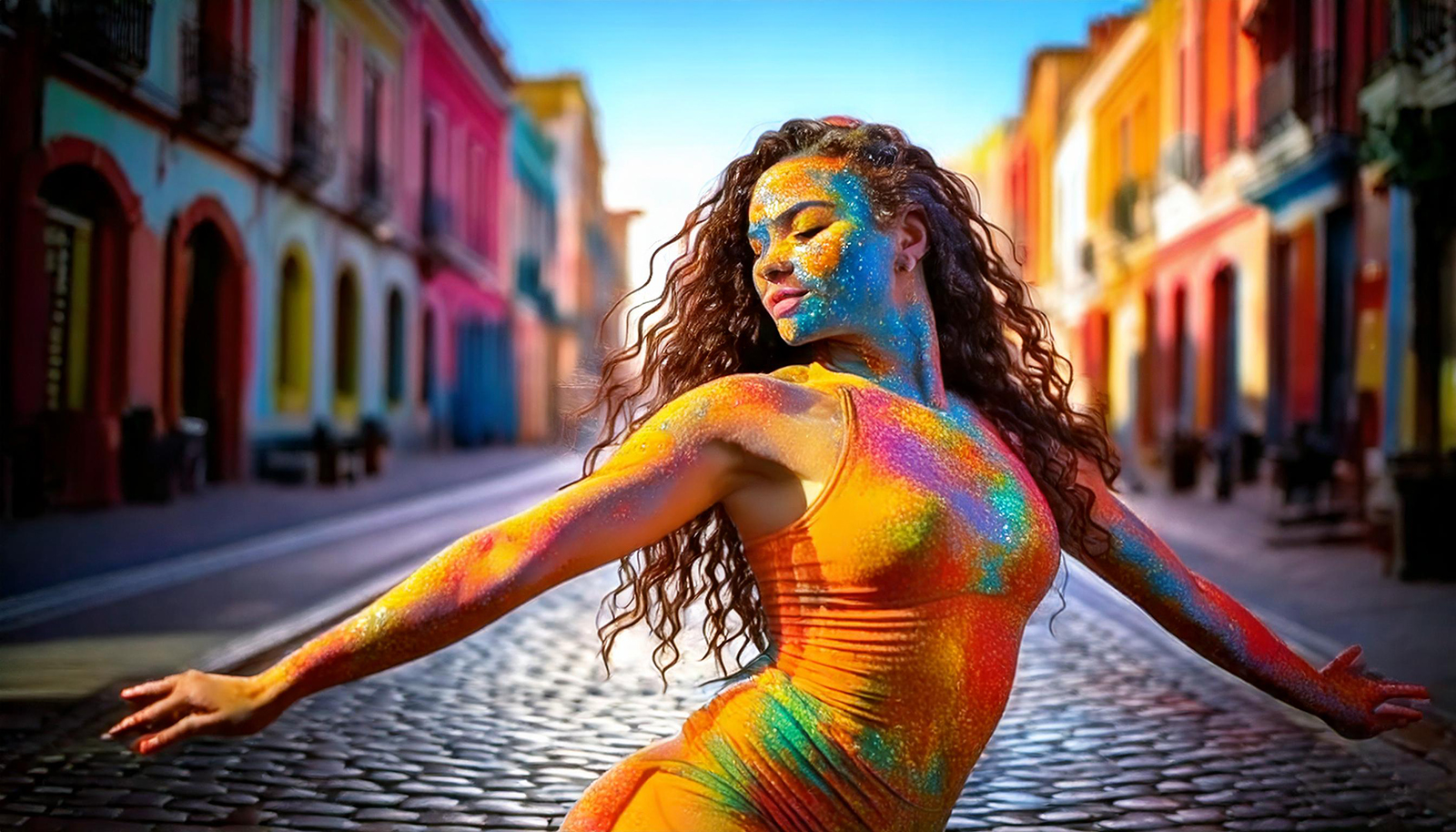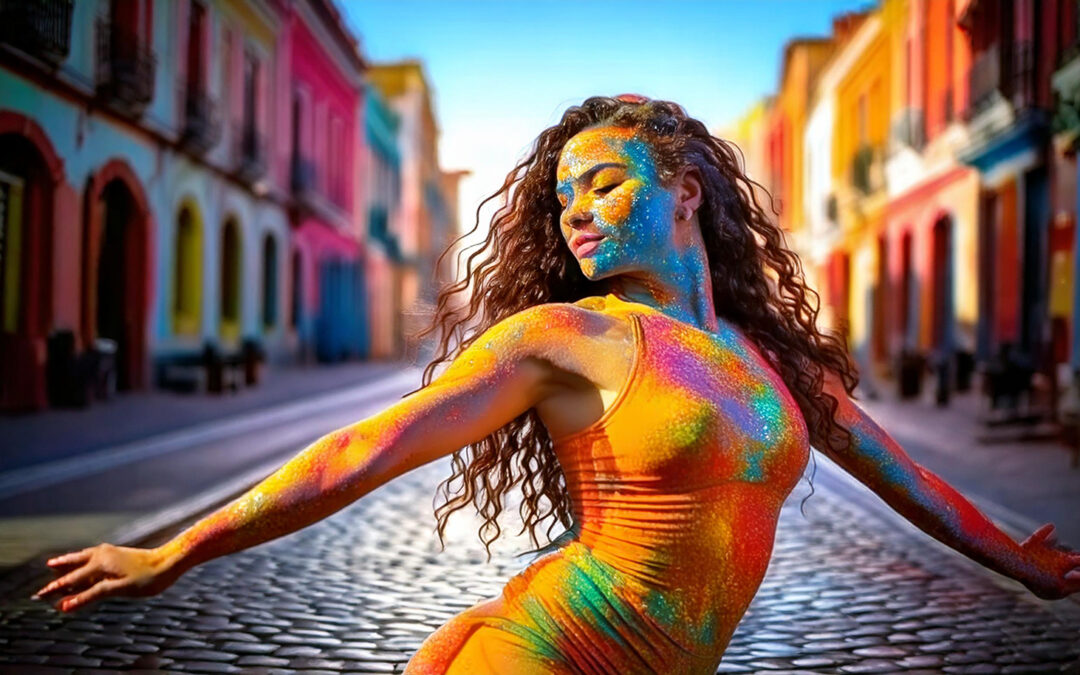What Does It Mean to be “Creative” Anyway?
Creativity and crazy. They go together like ginger and beer, aged cheese and fine wine, impressionist painters and lead poisoning. One can hardly think of one without the other. Almost by definition, creativity is the opposite of boring. If something is creative, it’s because it triggers some degree of surprise or excitement within us—it reconfigures existence in ways we could not have previously imagined.
Creativity is a delicate dance between novelty and value. For something to feel creative, it must feel both new and useful in some way. Although we think of creativity as creating something unique, most of it isn’t. In fact, most of what we experience as being “new” is simply taking old stuff and remixing it in fresh or unexpected ways.
Researchers call this “divergent thinking,” and it’s one of the best predictors of measurable creativity as well as one of the best skills to learn if you want to be more creative. Instead of asking yourself, “How do I create something new?” ask yourself, “How can I change something old to make it feel new?”
Even my own creativity has followed this path. One of the most common criticisms of my books is that I didn’t “come up” with most of the advice I give. Well… of course I didn’t! You really think I’m going to compete with Aristotle and the Buddha? This advice has been around for thousands of years. I simply repackaged it in interesting and novel ways, changed the emphasis on a few points, and added a couple of my own ideas to spice things up. Instead of focusing on happiness and positivity, I focus on pain. Instead of selling desperate people a vision of success, I help people question their definition of success. Instead of trying to sound like an authoritative expert, I use phrases like “authoritative expert.”
And this has worked. The millions of people out there who aren’t into mushy, woo-woo, feel-good self-help crap really appreciate the novelty of the way I write.
Which brings us to the second part of creative work: adding value. Creative work isn’t creative just because it’s “new”—it’s also creative because it adds some sort of value to the world.
For stuff that adds value but isn’t new, we generally consider it to be a rip-off of something or someone else. On the other hand, stuff that’s novel but doesn’t add value, we see as crude, tasteless, and immature.
Nailing the combination of novelty and value is difficult. It requires a lot of trial and error. It requires getting feedback from people. It requires understanding your audience and their values. It requires honing and perfecting your craft over many years of practice. And this is where the hard work of creativity comes in. For every genius symphony or mind-melting tech gadget, there are dozens, if not hundreds, of failed ideas. For every hit song, that band probably has half a dozen albums that no one has heard of. For every scientific breakthrough, there have been hundreds of theories that have been proven to be wrong.
Creativity is, in reality, hard work. And like all hard work, optimal creativity requires some degree of routine and repeatability. And that is why creativity is secretly kinda boring.
It turns out that creativity is a skill. And like any skill, you can practice and get better at it. In fact, just learning about creativity and how it works can help. So here are some of the not-so-exciting-but-also-really-important things you can do to be more creative in your own life.

- Change Your Environment: A new setting can offer fresh perspectives. Whether it’s working in a different room, visiting a park, or exploring a new city, a change of scenery can ignite new ideas.
- Read Widely: Dive into books, articles, and blogs outside your usual interests. This expands your knowledge base and introduces new concepts that can inspire your creative projects.
- Engage in Creative Hobbies: Activities like painting, cooking, or playing an instrument can stimulate your creative thinking and help you relax, leading to unexpected bursts of inspiration.
- Collaborate with Others: Brainstorming with colleagues, friends, or online communities can provide diverse viewpoints and ideas you hadn’t considered.
- Take Breaks: Sometimes, stepping away from a project can help you return with a fresh perspective. Engage in activities that you enjoy to recharge your mind.
- Keep a Journal: Writing down your thoughts, ideas, and experiences regularly can help you reflect and see patterns that spark creativity.
- Learn Something New: Taking up a new hobby or learning about a different field can open your mind to new ideas and ways of thinking.
- Practice Mindfulness: Meditation or mindfulness exercises can help clear your mind, reduce stress, and improve your focus, making it easier to tap into your creative side.
- Observe the World Around You: Pay attention to the details in your daily life. People-watching, nature walks, or simply observing your surroundings can provide inspiration for creative projects.
- Set Goals and Deadlines: Giving yourself specific targets and timelines can help motivate you to be creative and overcome procrastination.
- These strategies can help you find inspiration and nurture your creativity in various aspects of your life. Happy creating! 🎨✨
Robert Hazelrigg AKA The Graphics Guy
Graphic & Website Designer
126 Whalepond Rd. West Long Branch, NJ 07764
732-513-6807 | rhazelrigg@gmail.com


